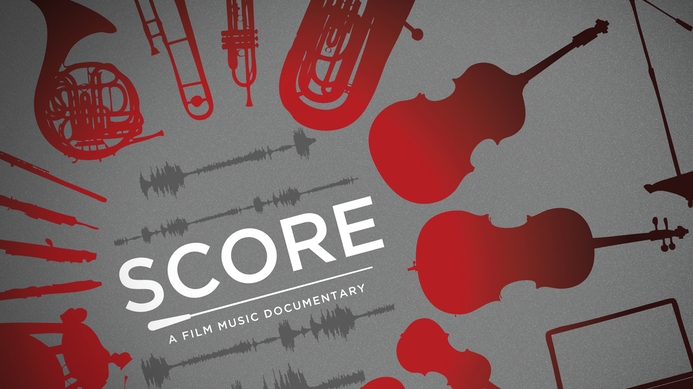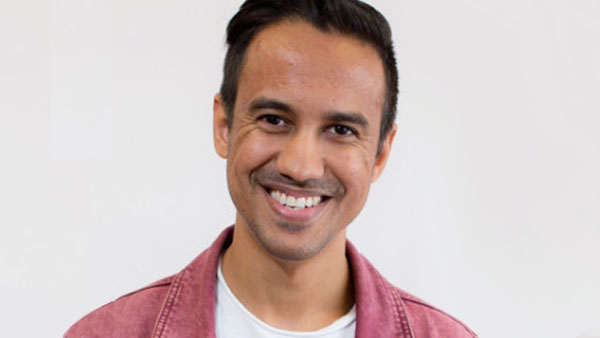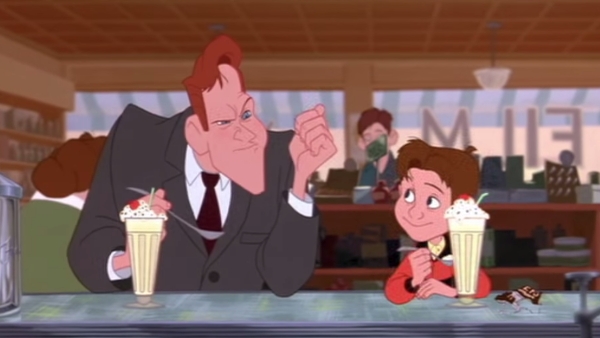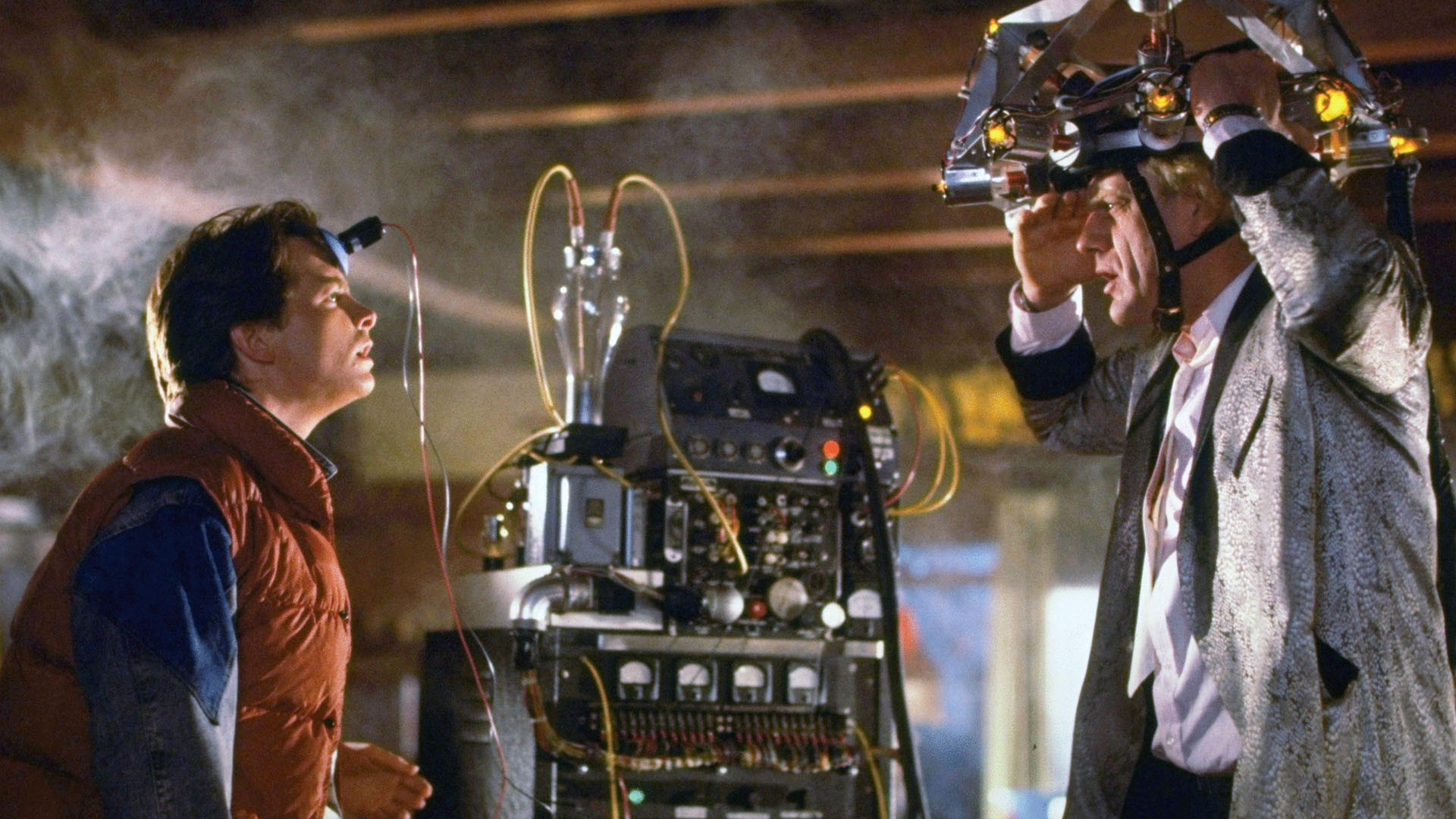 Have you ever wondered why certain film scores stick in your head? Have you ever found yourself humming the bars from Jaws, more terrified by John Williams‘ iconic two-note motif than the (robotic) shark which hunted Roy Scheider and the citizens of Amity Island? So much of that has to do with the craft, and, moreover, the creative skill of the composer.
Have you ever wondered why certain film scores stick in your head? Have you ever found yourself humming the bars from Jaws, more terrified by John Williams‘ iconic two-note motif than the (robotic) shark which hunted Roy Scheider and the citizens of Amity Island? So much of that has to do with the craft, and, moreover, the creative skill of the composer.
For example, how easily can you recall the theme to Back to the Future?…that was Alan Silvestri. Your kids love the infectious sound/songs of Frozen?…then thank Christophe Beck. You ever imagine yourself as the Caped Crusader and instinctively hum the theme to Batman or The Dark Knight?…give Danny Elfman and Hans Zimmer a round of applause. Truth be told, there’s always more than just one person to credit. In fact, a whole team stands behind the record/CD/MP3s you may have on endless repeat.
While there’s nothing scientific that can answer the questions above, director/producer Matt Schrader and his team have put close to two years into this one-of-a-kind documentary that may be the first to get close to anything resembling an explanation. Compiling input from more than 60 composers, industry professionals, and authoritative film music aficionados, this doc shines a light on the people behind some of cinema’s most beloved and influental themes.
Talking to Matt, we essentially walked into his kitchen while he was still cooking this definitive doc – one which gets inside the mind of Doyle, Jackman, Jablonsky, Gregson-Williams, and plenty others. We have no idea what the end product will be when SCORE: A Film Music Documentary is released later this year, but all we can say is that things smelled really enticing. Enjoy the entirety of our time with Matt.
GoSeeTalk: We’re excited to talk to you, Matt, because you’re doing a documentary about two of my favorite things: movies and movie music. Give us a SCORE State of the Union. What’s happening at the moment?
Matt Schrader: We’ve got a variety of things we are working on both front of house and back of house, so, just to be safe, and put out the best product possible, we will be pushing our official public release date a little bit to the Fall. That will allow us to include the final and remaining interview subjects that have agreed to be part of the film, but have yet to sit down with us. That’s one of the reasons we had the first delay. The post-production process is something else which takes a little care, especially now that we found the people we want to work with.
Looking at the staggering amount of talent you amassed for this documentary, with more to come as you say, are you trying to lock down Michael Giacchino, Joe Hisaishi, or possibly James Newton Howard? I know he is famously not keen on interviews.
*laughs* Well there’s a couple we’re working on, and I’ll tell you honestly, Giacchino declined – for some reason he just doesn’t seem interested. He’s the only person we ran into that issue with. But there’s a couple big names that are missing right now, and we’re trying to get in between things they are working on right now. One of them is scheduled already, and we’re waiting on a couple others now. Once we have that, we’re done!
Going back to that great pool of talent, talk to us about the logistics of this. Pushing back the release date is one thing, but scheduling talent and meeting with these people on their time must have required immense planning and strategy. I talked to Chris Kenneally – director of the documentary Side by Side (click here to read that) which discussed the decline of film in lieu of digital – and he said that the more big names you have, the more impossible things can get to pull together.
I would agree with that. Generally speaking, this has taken 16 months, and in that window of time, we have needed to round up 50 to 60 interviews. Doing the math here, that’s maybe one every couple weeks, and we certainly didn’t think it would take this long to put together. But I think a lot of people very early on, film composers especially, saw a lot of potential in this project so they made time for us. Flip side of that is that there’s also a lot of other people who are so bogged down working on a ton of projects, it is understandable that it would take time for them to be available.
Bear McCreary is one of them. When we first reached out to him he was doing six TV shows. He was doing The Walking Dead, Constantine, Agents of Shield, DaVinci’s Demons, and then he just had a kid, so he’s a very busy guy. But he was somebody that we really pushed hard to try to get in this film. We’re glad we did, but that’s a good example how tough it can be to lock things up. It’s not as easy as we thought in the beginning. We thought we would just make a phone call, talk to their agent, they’d love what we were doing, and we’d set something up within the week. These things, in some cases, have taken six months or more.
Alexander Desplat is someone we just were able to bring to the project, but that has taken us almost a year. We were in communication with him since before he won his Oscar for The Grand Budapest Hotel to just a few weeks ago. We haven’t announced that one yet, but we waited forever, and him being on the other side of the globe, for most of his time, made it a little more difficult as well. But yeah, *laughs* these things take a lot of time and commitment to put together. You can definitely see why this film, and this documentary hadn’t really been done before.
Your time and effort is one thing, add to that the efforts of your staff, and the post-production, this also has the backing of two very successful crowdfunding campaigns – KickStarter and IndieGoGo. How did those platforms help beyond just the monetary bump which were fulfilled shockingly, but not surprisingly quick?
There’s a couple things that people always go to. There’s the financial aspect, which was immensely helpful, but also that brings you marketing value as well. You have people around the world as passionate as yourself who really like the prospect and, in a way, become evangelists. There are people who believe in your product very early on and will tell other people about it. We’re still at the phase where we’ve built enough followers who are really interested in this, and we’re hoping at some point, when we release the film, that just explodes. The way that it’s shaping up right now, it looks really promising, and we hope those who jumped on board early on, and those who still don’t know what we’re doing, respond well to it.
One of the most common threads for people who work on both films and documentaries is how the movie can be found in editing. What about SCORE, if anything, has been affected or enhanced by that process? Did you have a different agenda once you started putting all these pieces together?
I come from a background which puts a little more focus on the importance of editing. I think that really solid and creative editing can transform a film, and so we’ve spent a lot of time having to weave together all these story lines in a way that makes sense. The toughest thing is that, you’re right, you begin to discover threads in editing which change, a little bit, the way you originally anticipated the story would be told. That is certainly the case here.
We begin to see certain ideas pop up, and I can think of a couple times where I said to people on my team, “how about we do something different with this section?”. Some of those have worked, and some of those haven’t. But it is interesting how some things naturally fit together that we really didn’t anticipate would when we started.
I think there’s a lot of thematic ideas, especially when we start to talk about the evolution of film, that actually tie in really nicely to some of the innovation that’s going on today in regards to throwing back to different styles and sounds. The editing certainly allows that in ways you never really thought about.
You’ve really amassed a diverse group of composers, from people who have a lifetime in film music, to people who are still kind of new to the game, as well as Penka Kouneva who is part of a small, but growing number of women composers.
But with all of these outlooks, mindsets, and levels of experience, what do you find composers saying almost unanimously? Was there one thing that everyone hit on, whether it was things that they wish would change in the industry, or time constraints? What did you not expect everyone to hit on at least in some point, whether asked about it or not?
Well, I don’t know if this is the most interesting angle, but one thing that everyone has talked about is that a great many of them do not like temp scores. Temp scores have become more and more common because music has become more and more accessible. There are a lot of films that, early on, use the score from Inception. Scores of people have fallen in love with that idea and turn to their hired composer and saying “hey, can you do this Inception thing?” And they are kind of like, “I don’t think this fits there, but I can do it if you want”.
So I think there’s a little bit of frustration there. That said, that’s partly the reason some of the industry is starting to reach out to different cities – mainly London, but also Nashville, and Seattle, and Prague. There are different recording facilities now, in different places, that are becoming more common because they’re cheaper.
These filmmakers don’t have to pay the same taxes, or Union fees, so it’s a financial decision for the studio. But at the same time, if you think of the new locations as seeds being planted, you can see how those can grow and become hot spots. I think as much as composers love going to London to Abbey Road and Air Studios, there might be a little apprehension because there’s more than one place to make great music and some really, really love the studios and musicians here in L.A.
There are a lot of talented people here, but there’s a little bit of a conflict sometimes when you start crunching numbers to determine how you make the highest quality product for the resources you are given. This starts to get into gut decisions that take the place of what a film needs. So, sometimes you can’t get what you want but what you’re able to achieve instead. Financial realities are something people might not realize weigh heavily into what they ultimately hear – either in cinemas or their headphones. So there’s a little frustration there, and some composers are trying to keep things close to home and keep the business here in LA.
Who specifically comes to mind?
John Debney has been at the forefront of that effort, and has been very passionate. He just finished The Jungle Book here. A lot of recordings are being done elsewhere, and he felt that it was important to be here. He’s somebody who I think really felt the need to keep the really talented people locally working.
People like John really want to see that industry survive in Hollywood
and not split up or break up and relocated elsewhere. They want to keep that strong cultural tie to the orchestral an instrumental aspect of filmmaking close to home, and, more globally, work towards keeping it alive. So they find it important, even though they are well aware there’s always going to be evolution. Things will always change and adapt to the times, but there’s comfort that the orchestra and their sound is not going away.
More and more projects are being scored with some combination of orchestras and electronic sounds too. Other non-conventional sounds are out there. Even YouTube videos are scored because it’s easier than ever to get people’s music out there. The availability and ease at which music can be created seems to speed up almost daily. What that sets up is an evolution that has everyone creating at one time, and all of that inevitably leads to innovation.
Steven Price, who won an Academy Award for Gravity, has been working in this business for almost 20 years. He has a wholly unique sound, as do Nathan Johnson, M83 and Joseph Trapanese, and each bring unique things to film scores. Even Steve Jablonsky is focusing on sound engineering to make his music one-of-a-kind. Those sounds are noticeably different, and to some it can seem perceptibly easier than what you would get working with a symphony and orchestrator. But how are people pushing boundaries with new techniques and technology? Sample libraries these days sound so much like the real thing you almost can’t tell what you’re hearing.
That is maybe something that not a lot of people realize. Sample libraries are everywhere, and it allows a lot of people the ability create sounds that sound really authentic. They do sound like a real orchestra! You can even vary the distance at which a microphone sit away from the “fake” instrument being played. So there’s a lot of ways that you can change that up.
It was interesting, early on, because several people on my team could not hear the difference between the best of the artificial orchestras and the real thing. It’s really, really hard. But after spending a little bit of time, and seeing how some of these sounds come together, now we can hear it really well.*laughs*
We can hear when something is not using real instruments – it is kind of softened, and smoother, and it lacks the organic feel. It’s strange because I don’t think people pick up on that, consciously, because it can be hard to relate to an orchestral concert experience because our society has moved so far away from that as entertainment. But there is so much character that comes with a real orchestra, and so I think that is great as technology has become, you cannot replace the real thing.
John Powell did this very eclectic and original score for The Bourne Identity using weird electronic sounds, rattles and percussion, but then at the end they found a little bit of money and he said “let’s get some real strings in there” and it brought that score to life. So I think there’s always going to be a demand for that because there’s so much character that comes through. There are so many instruments that seem uncool or unfashionable but each has such character, and there’s a reason that that they are in as much demand for the world’s biggest entertainment commodity.
People are increasingly going to orchestral music, not just because of the availability – titles offered by La-La Land Records, Varèse Sarabande, Intrada, etc – but also, these days, there seems to be a big draw to live concerts of film music. Many are played to the actual movie. We spoke with Michael Giacchino in advance of his tribute performance (check that out here) and soon after, he went on to conduct the live Star Trek concerts. But live concerts like that, large and small, are popping up all over the place.
Oh, I know! Next year, they are doing Jurassic Park and Williams has a few shows here at the Hollywood Bowl here in L.A. (click here to check out what’s currently scheduled), and those tickets are going to go fast. There’s something to be said about these types of events…it’s not your Father’s orchestra, you know? *laughs* It’s just a cool concept and people really, really respond to it. (check out numerous Live Concerts in different cities/countries by clicking this link)
More to that point, what have composers said about using their music after the release of a film? What are their thoughts on issuing the score on some special format or, like I learned talking with the guys at Mondo, while composers don’t have the rights to the music the can record/perform new, expanded, or alternate cues that weren’t in the film?
For most of the composers, I don’t think rights are an issue. That usually inhibits the legal path for third parties who want to use the music for theme parks or something else. Usually there isn’t much demand from the composers in particular because, what are they going to do with their own score? The album has already been put out, and the music in the movie is or has been playing in theaters across the country.
A few people have commented that sometimes the score might be turned down or tweaked in the mixing process – so we can hear the dialog – and they’ll go “that was my brilliant idea”, but because they don’t own the rights it’s not something they can easily use that one thing in something else they feel is appropriate. That said, there is this world of music where we can watch the story and see how things are very similar in a narrative sense, but when you add in the music, we are drawn to it even though we don’t really understand how it all works.
There are so many different components that go into it that sound similar, but there’s a lot going on behind the scenes that makes up what you hear. There’s only so many notes out there, but the music can still be drastically different even when underpinning or highlighting something very similar or familiar. It’s not something
we’ll focus on too much in the doc, even though more that a few have touched on it, because most composers just don’t see the need.
To them, it kind of feels like reading an old high school essay. *laughs* At first, they think, “ok, this will be interesting” but then they read it, and then they go “oh, why did I do that?? I was such a dumbass! I should have done it this way!”. There’s almost an element of frustration revisiting material they have previously done. Someone we talked to said that nearly every time a filmmaker uses a temp score, he walks in and hears the music he’s done.
Was that Brian Tyler by any chance? I asked him that once, and he says that happens all the time.
No, I don’t think it was, but other people echoed the same idea. When that happens, it’s almost worse than hearing someone else’s music because he said he is constantly reminded of what was going through his head when he scored that other movie. So having to contend, at first, with their older stuff just seems amateurish to them. That is unless they are really really proud of the work. For the most part, they think that old work is just so simplistic, and they just don’t want to listen to it again….for a while at least.
Henry Jackman said something like that – if he listened to his old scores, he would just pick the music apart. For him, music is a job, not a hobby. So when he’s off the clock, he’s doing something else entirely. It’s like that expression, “cobblers kids have no shoes“.
Exactly!
To use music in a narrative or documentary is one thing. But to make a documentary about the film music process and, in turn, score it is almost self-referential…I think I hear the horn from Inception blaring. Anyway, how do you approach scoring this doc about film score composers? As a bonus to the project, have any of the interviewees offered to do the job?
We are trying to be very minimalistic. We want to have the music we feature, while talking to the responsible parties, uninhibited as we attempt to talk about why one piece or another had such impact or resonance. That said, there are several moments that we know we will be using our own score to try and accent certain things we feel are important in a couple different sequences.
As a doc, it will be different than what any of these men and women would do for their narrative projects – we don’t want to make people cry – but it will give flavor and feeling about what these composers are trying to do with their music.
A lot of people have reached out asking if we need a composer, and at this point we don’t. But there are a few moments that will benefit from using our own music, and so we have a couple people who are very trusted to be able to help us dot the Is and cross the Ts on what we hope will be the definitive film on this subject.
I really hope so, Matt. To shine a light on this profession, you can’t really highlight one person without leaving anyone in the shadows. In that respect, the marketing materials so far have been very smart. So tell us, how did the back of John Debney’s head become the non-face of this documentary?
*laughs* Well, it wasn’t as calculated as you might expect. The current imagery may not be what we end up with. The end goal is to come up with something we think is appropriate for what we’re doing with the film.
But during this whole process of recording people at work and during sessions, sometimes you can be presented with a few eureka moments that are so unusual or unexpected that you’re just glad you were there to capture it. Little things pop and just become perfect moments that we’ll try to use later. You’re right though, there is not one face to this doc because we’re talking about a culture. We’re talking about this “sound” we know the film score to be, and why those scores are the phenomenon they are.
We sing them, we play them in our head as well as our stereos, and for some reason they are so powerful even though, when you think about it, the concept is silly – it is music played alongside a completely made up story. It doesn’t impact us at all really except for the two hours that we’re watching something. So the fact it can have that much on an impact on us is really interesting, and I think it’s part of the reason we were so inspired to put this together. We’re hoping to break that down a little bit for the fans of film scores out there…as well as ourselves.
Thanks to Matt for his time. Expect more updates from us as we’ll be keeping a close eye on SCORE: A Film Music Documentary. As soon as we can help spread more of the news about the film we will.
For now, head over the IndieGoGo page and help support the doc. There is still time to get involved and contribute…with the added benefit of getting your name in the end credits!


